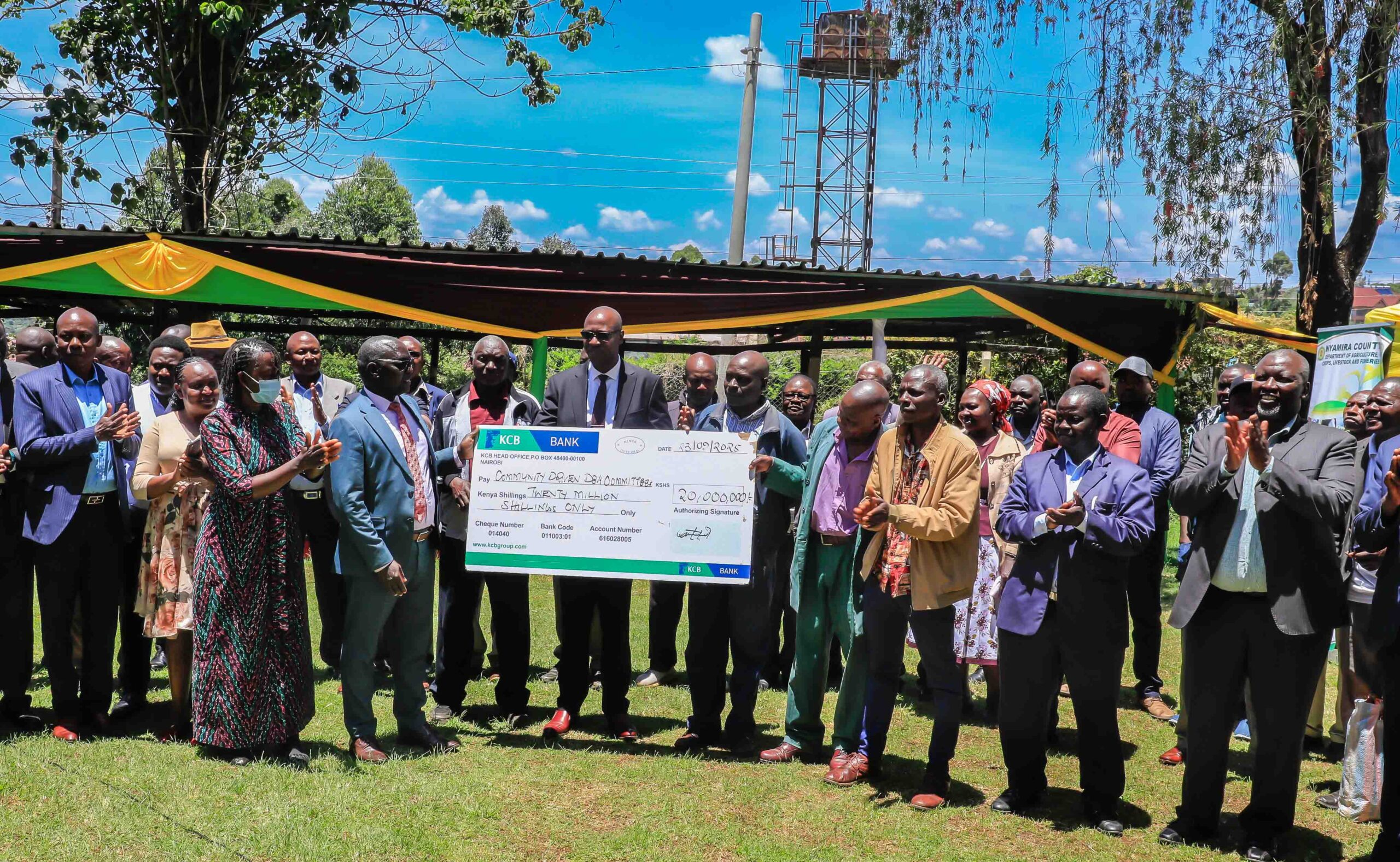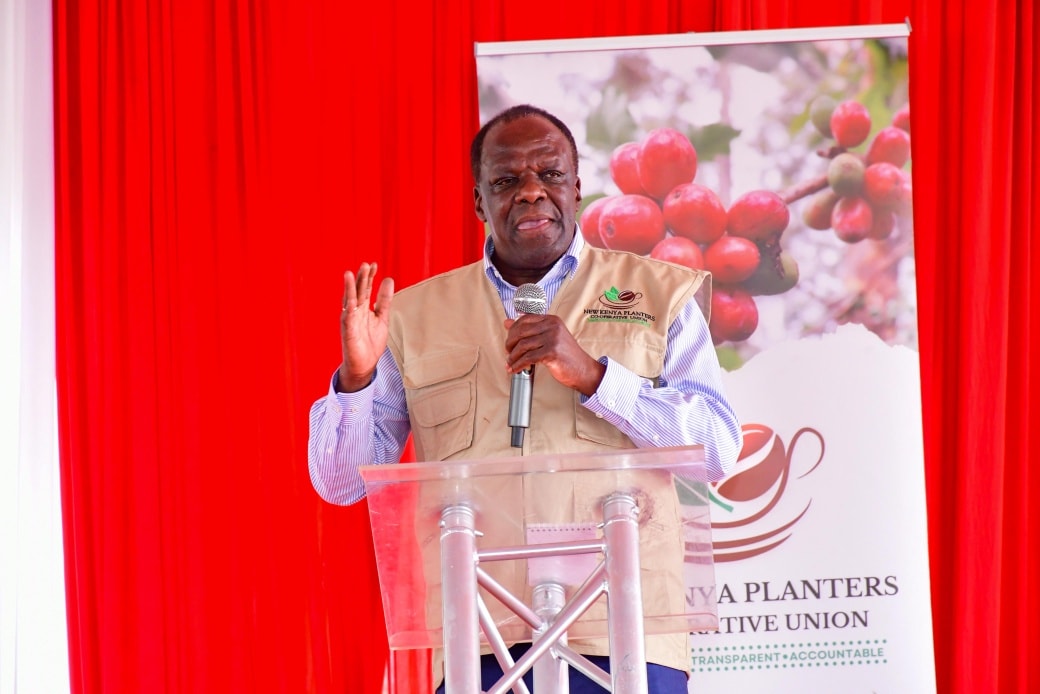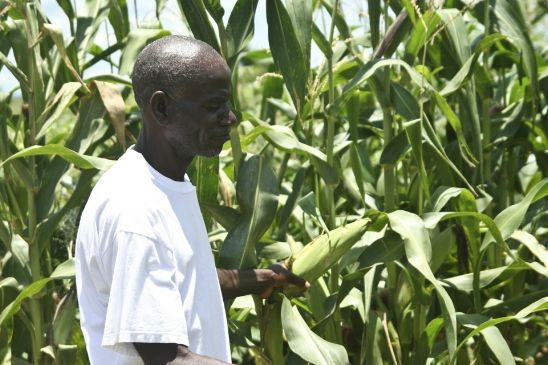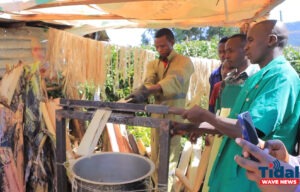
By Arnold Ageta
Askah Nyakwara is no ordinary lady because she is leading a team that is doing extraordinary things with what would have otherwise been thrown away as banana waste.
At the roadside WEFAHSON Cooperative Society houses her team that produces all sorts of household items, all made from banana waste.
She is among a team of groups that are currently supported by the Circular Economy in the County Aggregation and Industrial Parks Project implemented in Nyamira and Laikipia Counties.
Using fibres from banana pseudo stems which are considered a waste, WEFAHSON Cooperative Society members have weaved several products which they sell for income.
“From one pseudo stem we can extract fibre enough to weave a laundry bag worth KES 3,000. If you add to the foliar feed that we also make from the fermented fluid extracts you are creating around KES 3800 from what would have otherwise been thrown to rot away.” Askah says as she points at other items weaved out banana waste.
WEFAHSON Cooperative Society is composed of 506 members drawn from all corners of Nyamira County. Through this project the farmers have been trained on how to add value to banana waste within the circular economy approach.
“We produce braids from the banana fibres, unlike the other synthetic braids that some people have allergy against these ones don’t have that problem and already many people are buying them. We use locally available ingredients to color them. For black we use tea leaves, for yellow turmeric and hibiscus gives us red pigmentation.” Askah adds.
“This is one of the groups that has shown that circularity within the banana value chain has the potential to increase incomes. This group is literally weaving money from waste,” says Carolyne Kosgei the programme focal lead in FAO.
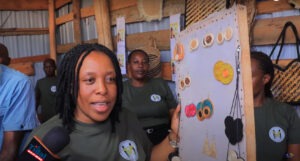
The group also produces banana wine and crisps and has engaged outlets to sell these products. The others include earrings, wall clock frames and key holders all weaved from banana fibres extracted from the banana pseudo stems.
“Empowering women to turn agricultural waste into high-value products is at the heart of what a circular economy can achieve. Through targeted training and local innovation, we are not only reducing waste but also creating sustainable livelihoods. This is the power of circularity in action” Linet Luvai the UNIDO Deputy Representative.
Askah is happy that their premises have hosted many other groups and even students that have visited to learn about our products and how we add value to what would have otherwise been thrown away as waste. She also appreciates the role of the County Government of Nyamira, which has been incredibly supportive and has ensured they are linked with donors and the market.
She also notes that with improvement or mechanization of their fibre extraction machine their members will be able to produce more and quality fibres that can be exported to the international market markets.
The circular economy approach is not just about reducing waste; it is about creating new value. Through targeted training on market and trade opportunities, International Organization for Migration (IOM) took lead in empowering beneficiaries to connect with wider market opportunities and contribute to a more circular and resilient economy.
This story was first published on FAO website

